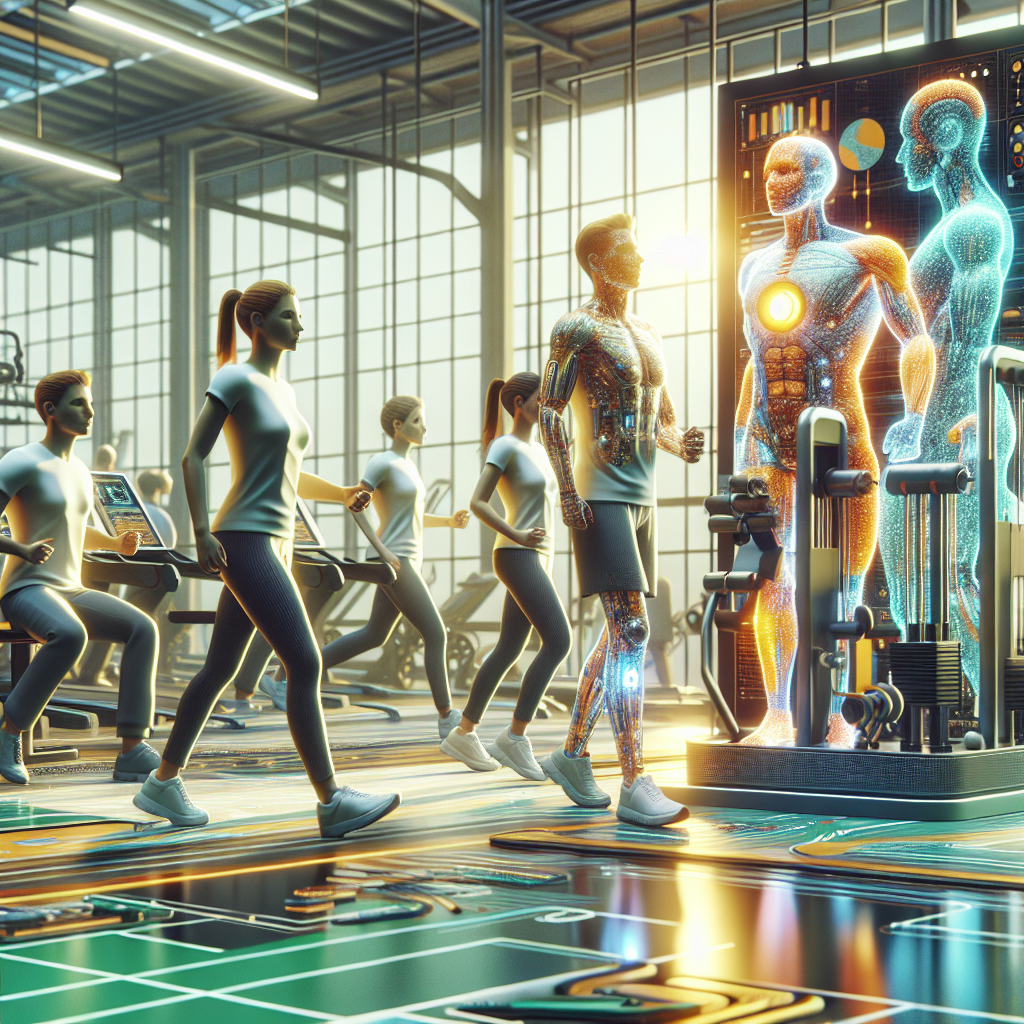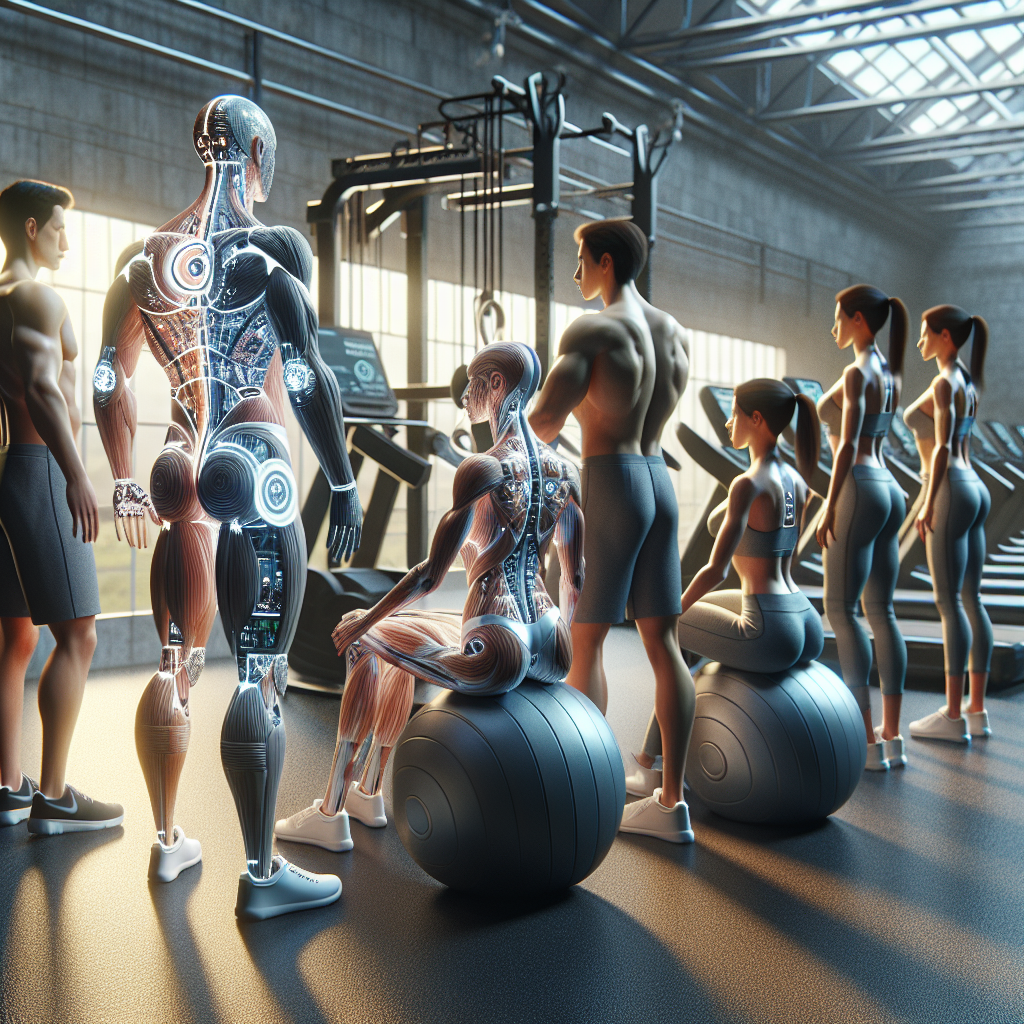“`html
In the quest for optimal health, personalized nutrition stands out as a revolutionary approach that customizes dietary recommendations to meet individual needs. This method considers a person’s genetic makeup, lifestyle, and health status to create a diet that is uniquely suited to them. As research in nutrigenomics and dietetics advances, personalized nutrition is increasingly seen as a viable solution to enhance well-being and prevent disease. This article explores how tailored nutrition solutions are crafted, the science behind them, and their potential impacts on health and wellness.
Understanding Personalized Nutrition
Personalized nutrition is an innovative approach that customizes diet plans based on individual characteristics. It moves beyond the one-size-fits-all dietary guidelines, acknowledging that each person’s nutritional requirements are unique. This bespoke method considers a range of factors, including genetic predispositions, environmental influences, and personal preferences.
The Science Behind Personalized Nutrition
At the core of personalized nutrition is the study of nutrigenomics, which examines how our genetic makeup affects our response to nutrients. Genes play a significant role in determining how we metabolize food, impacting everything from nutrient absorption to the risk of developing certain chronic conditions like obesity, diabetes, and heart disease.
Nutrients and Genetic Interaction
- Genetic variations can influence nutrient metabolism, leading to different nutritional needs.
- Specific gene-nutrient interactions can affect cholesterol levels, blood pressure, and glucose metabolism.
- Understanding these interactions allows for the development of targeted dietary interventions.
Epigenetics and Lifestyle Factors
In addition to genetics, epigenetics plays a crucial role in personalized nutrition. Epigenetics involves changes in gene expression influenced by lifestyle and environmental factors, such as diet, stress, and exposure to toxins. These changes can impact health outcomes and dietary needs.
Technological Advances in Nutritional Genomics
Recent technological advancements have made it easier to implement personalized nutrition. DNA testing, wearable health devices, and data analytics are revolutionizing how we approach personalized dietary recommendations.
- DNA Testing: Affordable genetic testing kits provide insights into individual genetic profiles, offering valuable data for personalized nutrition plans.
- Wearable Health Devices: Devices that track activity levels, heart rate, and caloric expenditure help tailor dietary recommendations to fit lifestyle patterns.
- Data Analytics: Advanced algorithms analyze vast amounts of data to uncover patterns and correlations that inform personalized nutrition strategies.
Crafting Tailored Diets
Developing a personalized diet involves collecting and analyzing comprehensive information about an individual. This process includes assessing genetic data, lifestyle factors, and health goals to create a diet that optimally supports well-being.
Key Components of Personalized Diet Planning
Genetic Profiling
Genetic profiling is the foundation of personalized nutrition. By identifying genetic variants that influence nutrient metabolism, practitioners can recommend specific dietary changes to optimize nutrient intake and reduce disease risk.
Assessment of Lifestyle and Environmental Factors
- Dietary Habits: Evaluating current eating patterns helps tailor recommendations that are both practical and sustainable.
- Physical Activity Level: Understanding activity levels ensures that energy intake aligns with energy expenditure.
- Environmental Influences: Factors such as stress, sleep, and exposure to pollutants are considered to provide a holistic dietary plan.
Health Status and Medical History
Medical conditions and past health issues are critical in shaping personalized nutrition plans. For instance, individuals with diabetes may require specific dietary adjustments to manage blood sugar levels effectively.
Implementing Personalized Nutrition: A Step-by-Step Guide
Creating and implementing a personalized nutrition plan involves several steps:
- Initial Consultation: Gather comprehensive data about the individual’s health, lifestyle, and genetic background.
- Data Analysis: Use tools and technologies to analyze genetic data and lifestyle factors.
- Plan Development: Develop a tailored diet plan that aligns with the individual’s health goals and nutritional needs.
- Implementation and Monitoring: Implement the plan with regular follow-ups and adjustments based on progress and changing needs.
The Benefits of Personalized Nutrition
Personalized nutrition offers numerous benefits that contribute to improved health outcomes and enhanced quality of life.
Enhanced Nutrient Absorption
By aligning dietary recommendations with genetic predispositions, individuals may experience improved nutrient absorption and utilization, leading to better overall health.
Reduced Risk of Chronic Diseases
Tailored nutrition plans can help mitigate the risk of chronic diseases such as heart disease, diabetes, and obesity by addressing specific genetic and lifestyle factors that contribute to these conditions.
Optimized Weight Management
Personalized diets can support effective weight management by considering individual metabolic rates, dietary preferences, and activity levels, making it easier to achieve and maintain a healthy weight.
Improved Mental Health and Cognitive Function
Nutritional strategies tailored to individual needs can positively impact mental health and cognitive function, reducing symptoms of depression and anxiety while enhancing focus and memory.
Increased Motivation and Adherence
Customizing diet plans to align with personal preferences and lifestyle increases motivation and adherence, leading to more successful long-term outcomes.
Challenges in Implementing Personalized Nutrition
Despite its benefits, personalized nutrition faces challenges in widespread implementation.
Cost and Accessibility
The cost of genetic testing and personalized diet planning can be prohibitive for some individuals, limiting accessibility to these services.
Data Privacy and Security
The collection and analysis of genetic and health data raise concerns about privacy and security, necessitating stringent measures to protect sensitive information.
Complexity of Nutrigenomic Data
Interpreting nutrigenomic data requires expertise and advanced tools, which can complicate the development of personalized nutrition plans.
Lack of Standardization
The lack of standardized guidelines for personalized nutrition poses challenges in ensuring consistency and reliability in dietary recommendations.
The Future of Personalized Nutrition
As technology and research continue to advance, the future of personalized nutrition looks promising.
Integration with Digital Health Platforms
The integration of personalized nutrition with digital health platforms will enhance the accessibility and effectiveness of tailored dietary interventions, offering real-time feedback and support.
Advancements in Artificial Intelligence
Artificial intelligence and machine learning will play a crucial role in analyzing complex genetic and lifestyle data, facilitating the development of more precise and effective nutrition plans.
Public Awareness and Education
Efforts to increase public awareness and education about the benefits of personalized nutrition will drive widespread adoption and support healthier lifestyle choices.
Collaboration Between Healthcare Professionals
Collaborative approaches involving dietitians, geneticists, and other healthcare professionals will ensure comprehensive and effective personalized nutrition strategies.
Conclusion
Personalized nutrition represents a paradigm shift in dietary planning, offering a tailored approach to meet individual needs and optimize health outcomes. By harnessing the power of genetics, technology, and lifestyle analysis, personalized nutrition has the potential to transform how we approach health and wellness. As the field continues to evolve, it will be essential to address challenges related to cost, accessibility, and data privacy to ensure that personalized nutrition becomes a viable option for individuals worldwide.
“`
Ready to Transform Your Fitness Journey?
Discover the Power of AI with PurelyFit!
Say goodbye to costly trainers and confusing diets. Experience workouts and nutrition plans tailored just for you. With over 600,000 recipes and real-time progress tracking, reaching your fitness goals has never been easier. Revolutionize your routine today!













